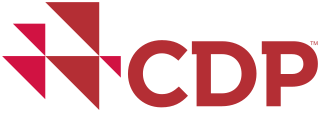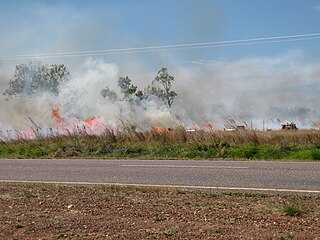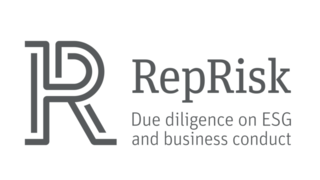The Climate Institute was a Sydney-based policy think-tank established in 2005 to encourage progressive policies for managing climate change in Australia.
Research work undertaken by the institute included an analysis of the vulnerability of sport to the growing physical impacts of climate change, [1] modelling the effects of Australia's Renewable Energy Target, [2] and examining the financial impacts of delayed climate change action. [3] [4] The institute also produced the annual Climate of the Nation report, a comprehensive survey of Australians’ attitudes on climate change, its impacts and solutions. [5]
An important component of the Climate Institute's work was building alliances and networks representing organisations across Australia's economy and society to achieve diverse support for strong action on climate change. It has been a lead player in key business alliances such as the Australian Climate Roundtable. [6]
Through its role in the Asset Owners Disclosure Project, the institute was also a pioneer in trying to get large asset owners – such as superannuation and pension funds – to recognise and disclosure carbon risk. [7]
The institute was originally set up for five years under funding provided by the Poola Foundation's Tom Kantor fund. [8] In 2017, the Climate Institute announced it would be closing in June. [9] The Australia Institute was selected to carry over the Climate Institute's legacy and remaining intellectual property including continuing the benchmark Climate of the Nation report. [10]
The Climate Institute has conducted research into the attitudes of Australians on climate change, its impacts and solutions, regularly since 2007. [5] The results, based on quantitative and qualitative social research, have been captured in Climate of the Nation reports. The data has become a key benchmark used by the climate/environment movement, media and other key stakeholders, domestically and internationally. The Australia Institute has taken over the research and production of the annual Climate of the Nation report.
In June 2017, The Climate Institute announced its closure due to a lack of funding. [9] The Australia Institute was selected to carry over the Climate Institute's legacy and remaining intellectual property including continuing the benchmark Climate of the Nation report. The 2018 Climate of the Nation report was subsequently released in September 2018.
The Climate Institute has helped to set up and/or participated in the following alliances and networks focused on building diverse support for action on climate change: [11]
The Asset Owners Disclosure Project (AODP) was originally developed as an initiative of the Climate Institute in 2008. The AODP is now an independent global not-for-profit global organisation aiming to protect asset owners from the risks posed by climate change, although it maintains a close working relationship with the institute.
The AODP works with pension funds, insurance companies, sovereign wealth funds, foundations and universities to improve the level of disclosure and industry best practice. It conducts an annual survey and assessment of the world's 1000 largest asset owners and publishes the AODP Global Climate 500 Index, which ranks these organisations based on their management of climate change risks.
Environmental finance is a field within finance that employs market-based environmental policy instruments to improve the ecological impact of investment strategies. The primary objective of environmental finance is to regress the negative impacts of climate change through pricing and trading schemes. The field of environmental finance was established in response to the poor management of economic crises by government bodies globally. Environmental finance aims to reallocate a businesses resources to improve the sustainability of investments whilst also retaining profit margins.

The Australian Conservation Foundation (ACF) is Australia's national environmental organisation. ACF is a community of over 700,000 people who speak out, show up and act for a world where forests, rivers, people and wildlife thrive. Founded in 1965, ACF has been a powerful voice for the environment for more than 50 years. It is an independent, non-partisan, non-profit organisation focused on advocacy, policy, research and community organising.

The Climate Group is a non-profit organisation that works with businesses and government leaders around the world to address climate change. This group has programmes focusing on renewable energy and reducing greenhouse gas emissions. Launched in 2004, the organisation operates globally with offices in the UK (headquarters), the United States and India.
The Australia Institute is an independent public policy think tank based in Canberra, Australia. Since its launch in 1994, it has carried out research on a broad range of economic, social, and environmental issues.
The Future Fund is an independently managed sovereign wealth fund established in 2006 to strengthen the Australian Government's long-term financial position by making provision for unfunded superannuation liabilities for politicians and other public servants that will become payable during a period when an ageing population is likely to place significant pressure on the Commonwealth's finances. In 2021 the fund had US$143.7 billion in assets under management.

The CDP is an international non-profit organisation based in the United Kingdom, Japan, India, China, Germany and the United States of America that helps companies and cities disclose their environmental impact. It aims to make environmental reporting and risk management a business norm, driving disclosure, insight, and action towards a sustainable economy. In 2021, over 14,000 organizations disclosed their environmental information through CDP.

Climate change in Australia has been a critical issue since the beginning of the 21st century. Australia is becoming hotter and more prone to extreme heat, bushfires, droughts, floods, and longer fire seasons because of climate change. Since the beginning of the 20th century, Australia has experienced an increase of over 1.4 °C in average annual temperatures, with warming occurring at twice the rate over the past 50 years as in the previous 50 years. Recent climate events such as extremely high temperatures and widespread drought have focused government and public attention on the effects of climate change in Australia. Rainfall in southwestern Australia has decreased by 10–20% since the 1970s, while southeastern Australia has also experienced a moderate decline since the 1990s. Rainfall is expected to become heavier and more infrequent, as well as more common in summer rather than in winter. Water sources in the southeastern areas of Australia have depleted due to the increasing population in urban areas coupled with a persistent prolonged drought.
Worker road safety refers to the economic, societal, and legal ramifications of protecting workers from automobile-related injury, disability, and death. Road traffic crashes are a leading cause of occupational fatalities throughout the world, especially in developing countries. In addition to the suffering of the workers and their families, businesses and society also bear direct and indirect costs. These include increased insurance premiums, the threat of litigation, loss of an employee, and destruction of property.
Environmental, social, and corporate governance (ESG) is an approach to evaluating the extent to which a corporation works on behalf of social goals that go beyond the role of a corporation to maximize profits on behalf of the corporation's shareholders. Typically, the social goals advocated within an ESG perspective include working to achieve a certain set of environmental goals, as well as a set of goals having to do with supporting certain social movements, and a third set of goals having to do with whether the corporation is governed in a way that is consistent with the goals of the diversity, equity, and inclusion movement.
Responsible Research Pte Ltd is an independent Environmental Social and Corporate Governance (ESG) research firm for global institutional asset owners and asset managers. Based in Singapore, Responsible Research analyses the ESG factors and regulatory landscapes that increasingly threaten portfolio returns in Asian markets.

The United Nations Environment Programme Finance Initiative is a global partnership established between the United Nations Environment Program (UNEP) and the financial sector. UNEP FI catalyses action across the financial system to align economies with sustainable development. As the UN partner for the finance sector, they convene financial institutions on a voluntary basis to work together with them, and each other, to find practical solutions to overcome the many sustainability challenges facing the world today. UNEP FI does this by providing practical guidance and tools which support institutions in the finance sector to find ways to reshape their businesses and commit to targets for limiting greenhouse gas emissions, protecting nature, promoting a circular economy and supporting financial inclusion to address inequality. The solutions developed effectively form a blueprint for others in the finance sector to tackle similar challenges and evolve their businesses along a sustainable pathway. The creation and adoption of such a blueprint also informs policy makers concerned with sustainability issues about what would constitute appropriate regulation for the finance sector at large. Founded in 1992, UNEP FI was the first organisation to pioneer engagement with the finance sector around sustainability. The Finance Initiative was responsible for incubating the Principles for Responsible Investment and for the development and implementation of UNEP FI’s Principles for Responsible Banking and Principles for Sustainable Insurance as well as the UN-convened net-zero alliances. Today, UNEP FI provides sustainability leadership to more than 400 financial institutions, with assets of well over $80 trillion headquartered around the world.

Infigen Energy (Infigen), operating under this name since 29 April 2009, is a developer, owner and operator of renewable energy generation assets in Australia. Infigen's wind farm portfolio has an installed capacity of 557 MW. Most of Infigen's assets generate electricity from renewable sources and are eligible to sell Large-scale Generation Certificates (LGCs) under the mandatory Renewable Energy Target scheme, which operates in Australia under the Renewable Energy (Electricity) Act 2000. Since 2020, Infigen Energy has been a subsidiary of Iberdrola.

The Sustainability Accounting Standards Board (SASB) is a non-profit organization, founded in 2011 by Jean Rogers to develop sustainability accounting standards. Investors, lenders, insurance underwriters, and other providers of financial capital are increasingly attuned to the impact of environmental, social, and governance (ESG) factors on the financial performance of companies, driving the need for standardized reporting of ESG data. Just as the International Accounting Standards Board (IASB) and the Financial Accounting Standards Board (FASB) have established International Financial Reporting Standards and Generally Accepted Accounting Principles (GAAP), respectively, which are currently used in the financial statements, SASB's stated mission “is to establish industry-specific disclosure standards across ESG topics that facilitate communication between companies and investors about financially material, decision-useful information. Such information should be relevant, reliable and comparable across companies on a global basis.”
NABERS, the National Australian Built Environment Rating System, is an initiative by the government of Australia to measure and compare the environmental performance of Australian buildings and tenancies. There are NABERS rating tools for commercial office buildings to measure greenhouse gas emissions, energy efficiency, water efficiency, waste efficiency and indoor environment quality. There are also energy/greenhouse and water rating tools for hotels, shopping centres and data centres.
The Institute for Security Studies, also known as ISS or ISS Africa, described itself as follows: "an African organisation which aims to enhance human security on the continent. It does independent and authoritative research, provides expert policy analysis and advice, and delivers practical training and technical assistance." Their areas of research include transnational crimes, migration, maritime security, development, peacekeeping, peacebuilding, crime prevention, criminal justice, conflict analysis and governance. It is the largest independent research institute in Africa dealing with human security and is headquartered in Pretoria, South Africa, with offices in Kenya, Ethiopia and Senegal. In 2019, it was ranked 116th by the Global Go To Think Tanks Report and 55th among think tanks outside the United States.

RepRisk AG is an environmental, social, and corporate governance (ESG) data science company based in Zurich, Switzerland, specializing in ESG and business-conduct risk research, and quantitative solutions.
Carbon Tracker is a London-based not-for-profit think tank researching the impact of climate change on financial markets.
Multiple Sclerosis Research Australia, better known as MS Research Australia, is a national not-for-profit organisation that coordinates and funds multiple sclerosis research in Australia. Its research arm claims to be the top national advocacy body and largest national not-for-profit dedicated to facilitating and funding research into Multiple Sclerosis for people in Australia living with MS
Sustainable finance or green finance is the set of financial regulations, standards, norms and products that pursue an environmental objective, and in particular to facilitate the energy transition. It allows the financial system to connect with the economy and its populations by financing its agents while maintaining a growth objective. The long-standing concept was promoted with the adoption of the Paris Climate Agreement, which stipulates that parties must make "finance flows consistent with a pathway towards low greenhouse gas emissions and climate-resilient development."

Opha Pauline Dube or Pauline Dube is a Botswanan environmental scientist and Associate Professor in the Department of Environmental Science at the University of Botswana. She co-authored the IPCC's Special Report on Global Warming of 1.5 °C. She is one of fifteen scientists creating the 2023 Global Sustainable Development Report for the United Nations.